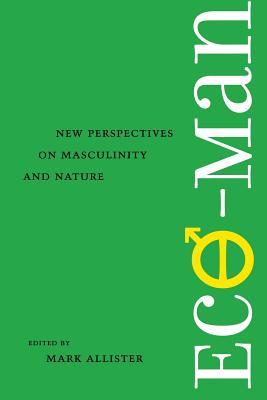The paradoxical role nature plays in American myth and history grows in part from the male's reverent fascination with the wilderness and his equally strong impulse to dominate it. Many canonical literary works--think of Thoreau, Melville, Hemingway, Faulkner--look to the wild as the site for establishing a man's selfhood. But nature is just as often subjected to his most violent displays of mastery.
This tension lies at the heart of Eco-Man, which brings together two rapidly growing fields: men's studies and ecocriticism. The two disciplines have rarely if ever touched on each other; brought together, men's studies is freed from its typical limitation of an exclusively urban-centered perspective, while ecocriticism engages an "ecomasculine" lens through which to view the field. The book's contents are diverse, but the contributors all challenge our idea of masculinity as merely the social code of patriarchy. By complicating our cultural notions of nature and masculinity, the volume's twenty essays question whether we can construct a notion of manhood around ecological principles and practices--and if so, what this would look like, and how it would enrich men's studies.
The varied assembly of contributors to Eco-Man--including historians, philosophers, poets, both male and female--have all written with the general reader in mind. The result is a book as approachable as it is groundbreaking.
Contributors: John Tallmadge * Gretchen Legler * Mark Allister * Scott Russell Sanders * Thomas R. Smith * Scott Slovic * Alvin Handelman * David Copland Morris * Rick Fairbanks * Cheryll Glotfelty * Barton Sutter * James Barilla * Timothy Young * O. Alan Weltzien * Julia Martin * Patrick D. Murphy * Jim Heynen * Lilace Mellin Guignard * Stephen J. Mexal * Ken Lamberton * James J. Farrell
